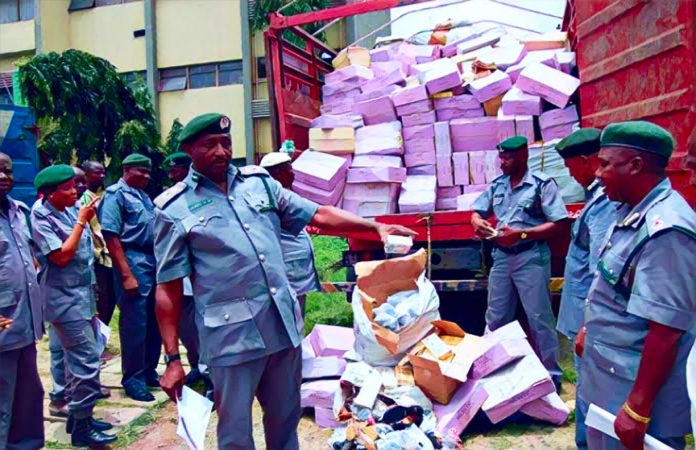KEY POINTS
- Smuggling leads to significant revenue losses for Nigeria.
- Illicit trade undermines local businesses and industries.
- Fuel smuggling distorts the economy and causes shortages.
Smuggling has long been a significant challenge for Nigeria, impacting various facets of its economy. Let’s explore how this illicit activity affects the nation’s financial health.
Revenue loss from uncollected taxes and duties
One of the most direct consequences of smuggling is the loss of government revenue.
The government fails to collect its regular customs duties and taxes because of unlawful importation and exportation activities.
Any revenue lost through illegal imports and exports creates difficulties for the government to adequately support essential services and national building projects.
Nigeria’s socio-economic activities have been significantly impacted by smuggling activities, as reports show it leads the country to suffer major revenue losses.
Undermining local industries and businesses
Local business enterprises face unbalanced competition from smuggled products.
Goods that enter the country through illegal channels sell at reduced prices when customs duties are avoided, which then enables them to take business from domestic manufacturers.
The unfair competition drives local industries to closure which produces employment reductions and diminishes national manufacturing capacity.
Research indicates that smuggling has inhibited the performance of small and medium-scale enterprises in Nigeria, thereby retarding economic growth.
Fuel smuggling and economic distortions
Nigeria’s subsidized fuel prices have inadvertently incentivized smuggling, especially to neighboring countries where fuel prices are higher.
This not only leads to domestic fuel shortages but also strains the nation’s economy.
An article discussing fuel subsidy removal in Nigeria points out that smuggling results from market distortions and represents a grievous form of waste for the country.
Encouraging corruption and informal economies
A high rate of smuggling encourages widespread corruption and tax avoidance practices.
The practice of bribery among officials leads them to ignore unlawful activities while simultaneously destroying both legal structure and proper governance.
The expansion of informal economies brought about by smuggling operations makes economic management considerably harder, since these illegal sectors function beyond official oversight.
Threatening national security
The illegal activities of smuggling create dangerous security threats. The unlawful transportation of merchandise extends to weapons and banned materials, thus creating new threats of violence and social disorder.
The United Nations Office on Drugs and Crime has identified the smuggling of Nigerian migrants, related cases of document fraud and various illegal actions as major issues of concern.
The Nigerian economy suffers from adverse economic impacts created by smuggling due to lost public revenue, declining home industries, market deformities, increased corruption levels and security risks.
Controlling this problem needs deep national strategies that involve border protection systems, better enforcement, new trade systems and stronger government management standards.



